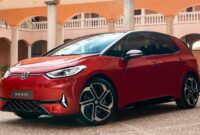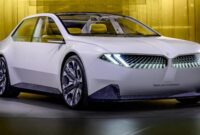BMW has started producing the iX5 Hydrogen crossover. The automaker is building new models at the Munich Research and Innovation Center, with the cars slated to become technology demonstrators in select markets from next spring.
About 900 people work in the company’s research centre, with employees working on up to six vehicle projects concurrently. It is here that BMW builds each model for the first time, ensuring the product and build process are ready for full production.

33 Photo
“Hydrogen is a versatile energy source that has a key role to play as we move towards climate neutrality,” said Frank Weber, member of the management board at BMW responsible for development. The company will use its iX5 Hydrogen test fleet to learn more about the technology as it believes a mix of battery-electric and fuel-cell electric vehicles is necessary. Weber notes that FCEV does not require critical raw materials essential for battery production, such as cobalt, lithium or nickel.
The iX5 started its life at the company’s Spartanburg factory in the US. In Germany, the crossover received a new floorboard designed to accommodate two hydrogen tanks located in the center tunnel and under the rear seat. BMW installs 12 and 400 volt electric systems, high performance batteries, fuel cells and electric motors during the assembly stage.
After assembly and painting, BMW put the crossover under “comprehensive operational inspection” at the Aschheim test center. However, the iX5 has completed an intensive testing program ahead of its production.
BMW is not alone in its hydrogen endeavors. Honda announced this week that it will be launching a hydrogen fuel cell plug-in EV in 2024. It will be based on the popular CR-V crossover which received a significant redesign for the 2023 model year. Like BMW, Honda has been very careful with the models. low-volume production, building it at the Performance Manufacturing Center in Ohio, where Honda built its race car, the Acura NSX, and the Acura PMC Edition model.
If we know anything about the future, it’s not set in stone. Automakers are facing new uncertainties with electric vehicles, and the lack of a robust charging infrastructure is not helping. Hydrogen, however, faces similar limitations, but that hasn’t stopped BMW, Hyundai and others from continuing to explore the feasibility of the technology.




